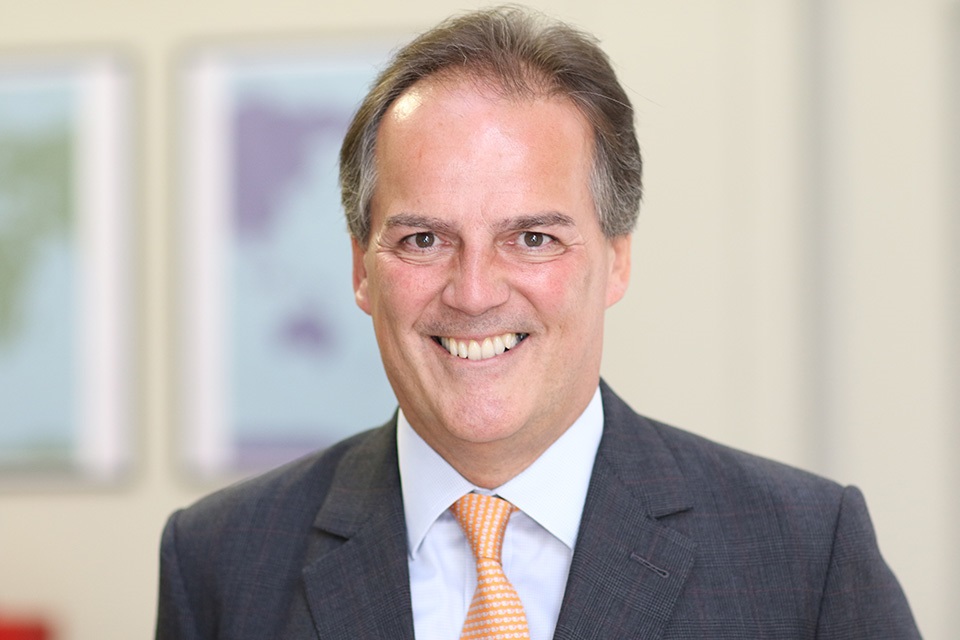Non-proliferation: UN Security Council statement by Mark Field
The Minister of State for Asia and the Pacific spoke at a United Nations Security Council meeting about ending the proliferation of weapons of mass destruction.

Thank you Mr President, and thank you Secretary Tillerson for calling this important meeting of the Security Council.
The proliferation of weapons of mass destruction is the greatest of regional and international security concerns. This threat does not respect national borders. The proliferation of these weapons must end. We all play our part in this.
Our shared rules and norms are designed to keep the world safe. This Council has a responsibility to prevent proliferation, to tackle threats and to respond when these weapons are used.
Individual nations also have a responsibility to implement the measures imposed by the Council and indeed to be ready to go further when the situation requires.
Individually and collectively, we must enforce these rules, working through organisations such as the International Atomic Energy Agency and the Organisation for the Prohibition of Chemical Weapons, or as groups of concerned states. If we are to succeed, this Council and strong multilateral institutions must be at the heart of that approach. And we must persist when countries continue to defy the international rules-based system.
That is why it is right that we have collectively developed a framework of sanctions against North Korea, and that we have continued to strengthen these sanctions in the face of DPRK’s dangerous provocations.
In Seoul only last month, I was struck by the focus of President Moon’s government in trying to resolve the situation, recognising that what has long been a regionalised dispute now has truly global ramifications.
Let us be clear. Secretary Tillerson has made it clear that the US does not seek regime change, nor accelerated reunification of the peninsula, nor to garrison its forces north of the 38th parallel, nor indeed to harm the North Korean people.
Yet the DPRK responded with yet more missile tests and another nuclear test. While the regime prioritises its military programmes, North Korean people suffer deprivation and hardship.
That is why we must all continue to press North Korea to respect the Council’s resolutions and even at this stage, to change its reckless course. We must enforce the measures that we have adopted and be prepared to expand them if North Korea continues on its reckless path.
Turning to the very different case of Iran, we now know that the multilateral system can and will continue to deliver results. The Joint Comprehensive Plan of Action has succeeded in limiting Iran’s nuclear capability. Iran has rolled back its nuclear programme. The International Atomic Energy Agency has had unprecedented access.
So the British government will continue to abide by our commitments under the deal and we urge other parties to do the same. Iran must continue to do so if we are all to have confidence in the peaceful nature of its nuclear programme.
However, whilst the JCPOA has dealt with one risk, others, as we all know, remain. Iran continues to play a destabilising role in its region and its ballistic missile testing remains inconsistent with UN Security Council Resolution 2231. Iran must respect the call of this Council and cease these activities.
As other members have said, the situation in Syria also poses serious proliferation challenges. This year sarin gas has again been used as a weapon, a clear violation of the international prohibition on the use of chemical weapons. There must be no impunity for perpetrators of these terrible crimes.
I call on Members of the Council to support the vital work of the Council-mandated Joint Investigative Mechanism and to renew its mandate.
And we must keep driving forward our efforts based on United Nations Security Council Resolution (UNSCR) 1540 to prevent non-State actors from acquiring and using weapons of mass destruction.
We all recognise that these proliferation challenges are complex. They require a persistent and united approach, in line with existing treaties and norms. That is why the UK government, for one, does not believe the treaty banning nuclear weapons, which opened for signatures yesterday, is helpful. It will only, I believe, create unnecessary divisions and undermine the Non-Proliferation Treaty, which rightly sits at the heart of our non-proliferation efforts.
Mr President, ladies and gentlemen, This Security Council has a heavy responsibility to protect international peace and security. Member states share that responsibility and must play their part in implementing the Council’s resolutions. We now need to work tirelessly together to stop proliferation, to save lives and make the world a safer place.